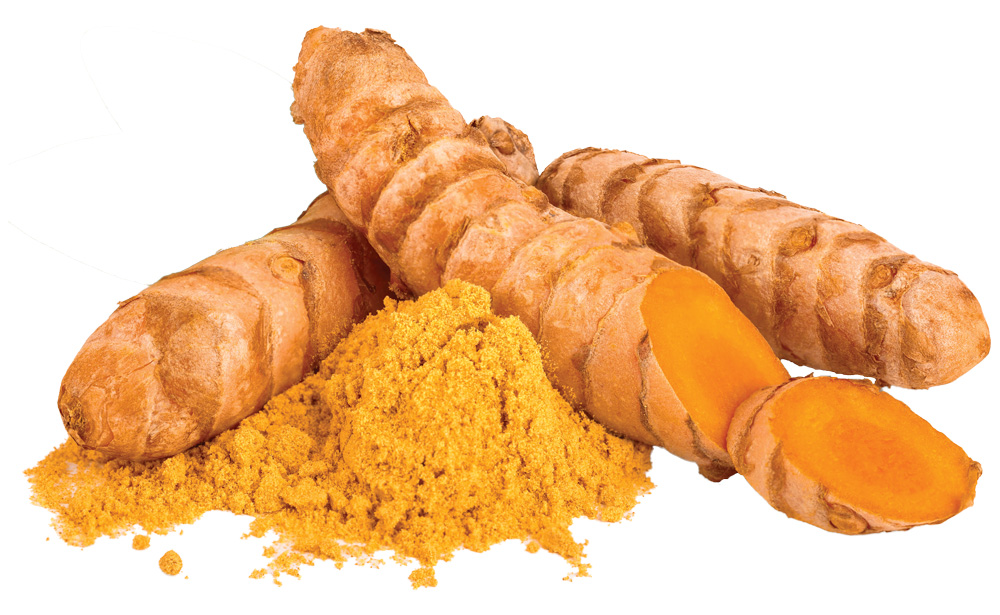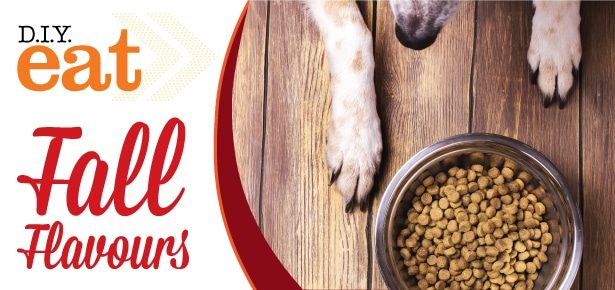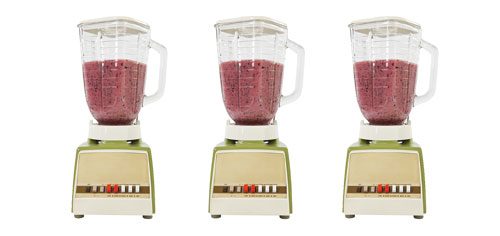

9 People Foods You Should Feed Your Dog to Improve Their Health
Add these powerhouse foods to your dog’s diet and reap the benefits
From tumeric to coconut oil, add these super-foods to your dogs diet and see health benefits from improved coat condition to better gut health! Dosages included in the below.
1. Turmeric contains a powerful natural anti-inflammatory called curcumin. When added to your dog’s daily diet, turmeric can help prevent a whole host of problems by reducing chronic inflammation, which is now believed to be one of the major root causes of age-related issues, including joint degeneration, heart problems, declining mental faculty, and even cancer.
Dosage: Add ⅛ teaspoon per 10 pounds of body weight daily to your dog’s dinner.
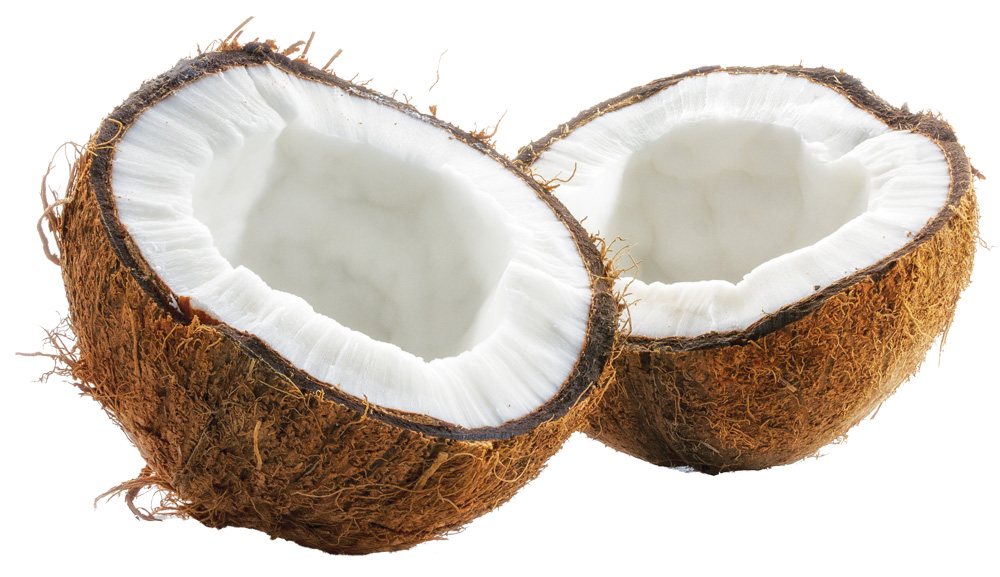
How to administer: Give orally on a spoon (most dogs love the taste) or add a spoon to your dog’s dinner.
Give unsweetened, natural coconut chips as a naturally sweet, crunchy treat dogs love.
Apply directly to the skin and coat to make it softer and healthier.
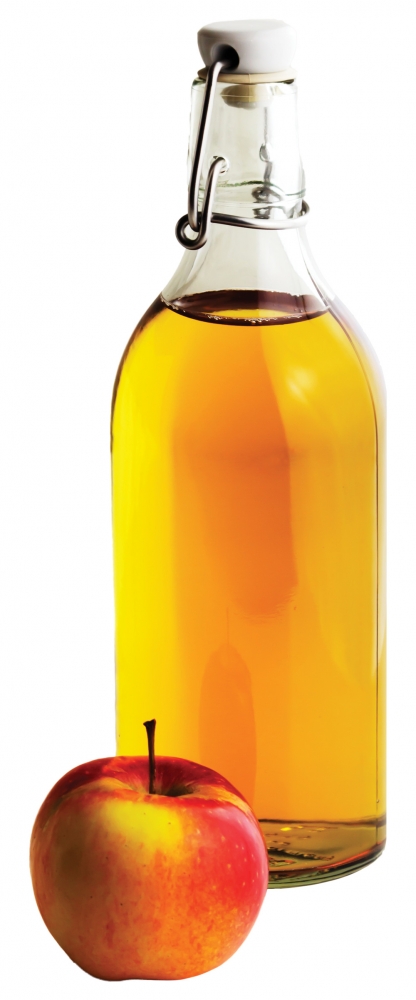
Dosage: 1 teaspoon for small dogs and 1 tablespoon for medium-large dogs, added to their food once a day. You can add it to your dog’s drinking water if your dog doesn’t mind the taste. Be sure to use organic, unpasteurized (raw), unfiltered, naturally fermented apple cider vinegar. We like Bragg’s. Do NOT use white distilled vinegar.
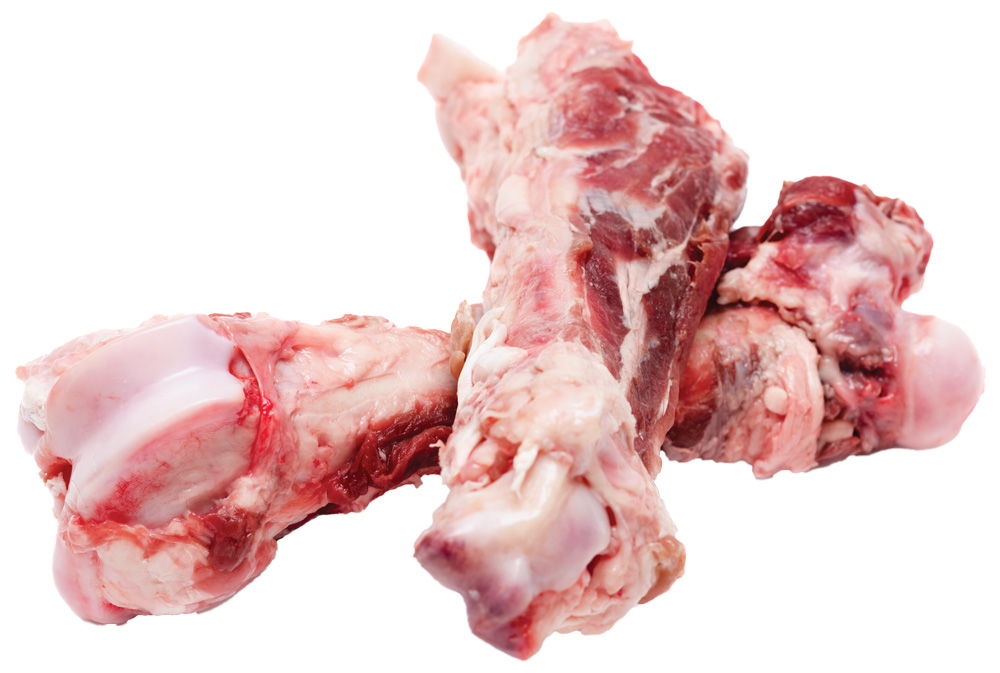
Are they right for your dog? Many dogs adore their raw meaty bones and thrive with them. But there are also stories of dogs that have chipped or broken a tooth, or swallowed a fragment of bone, which could potentially cause a blockage. Never feed your dog cooked bones, which tend to splinter. Always choose bones with plenty of marrow and connective tissue. Ian Billinghurst, author of Give Your Dog A Bone and The BARF Diet, advises feeding uncooked bony parts of chicken (think necks, wings, and backs), turkey necks, beef knuckles, marrow bones, and lamb bones.
Supervise your dog when he has a raw meaty bone and take it away to dispose of once he’s done with it (don’t leave it sitting out for your dog to return to in another session.) Inspect the bone before you toss it to make sure there are no broken or splintered pieces.
Unsure of what type or size of bone is right for your dog? Ask at your local natural dog store. Many stock raw bones in their freezer and they can help choose the bone that’s right for your dog.
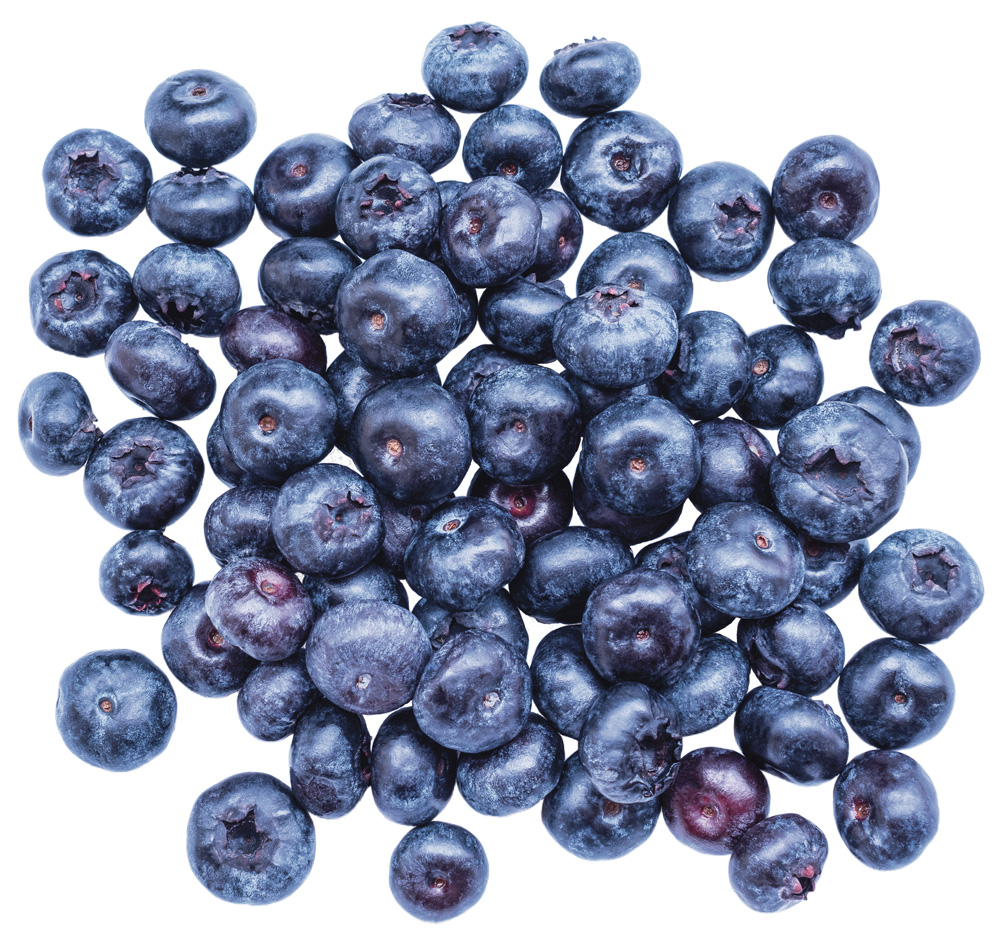
Blueberries pack a lot of nutritional punch: They’re high in fiber, low in calories, and rich in vitamin C. They also contain high amounts of phytochemicals, which have been shown to help fight cancer in humans. Plus, they’re packed with antioxidants, which are key in helping fight the free radicals that cause cellular and molecular damage in both dogs and humans. Bonus for senior dogs: studies have found that adding antioxidants to your dog’s diet can help the aging brain!
Feeding: Small and large dogs alike can enjoy blueberries, which can be fed either fresh or frozen. Remember that all treats should make up no more than 10 percent of your dog’s daily diet.
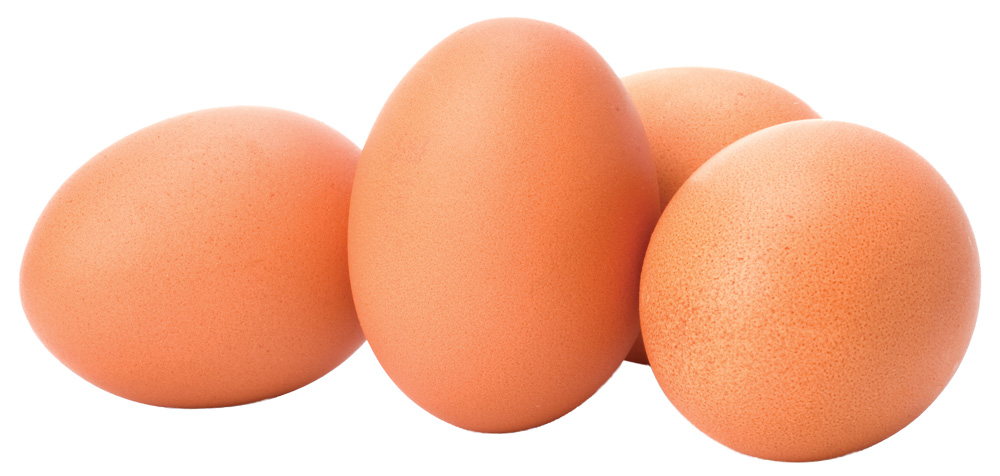
How many eggs can your dog eat? Dogs can eat a little bit of egg each day. How much depends on the size of your dog. Keep the 10 percent treat rule in mind.
Feed: Boiled or cooked.
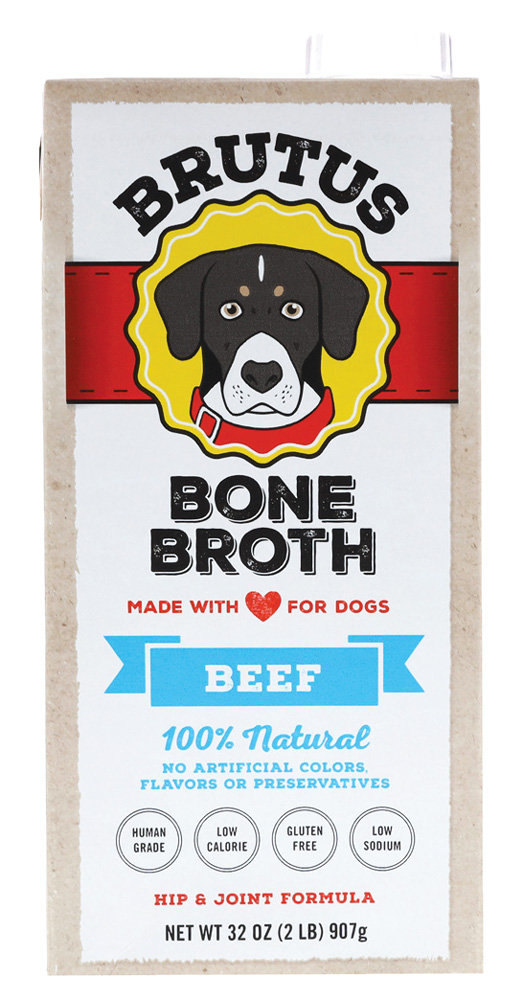
You can make bone broth by simmering bones on low for eight to over 24 hours with apple cider vinegar (find the recipe at moderndogmagazine.com/bone-broth) or you can buy it ready to go! Brutus Bone Broth for dogs is an all-natural, human-grade broth made with high quality ingredients such as glucosamine, chondroitin, and turmeric for happy joints! (from $9, brutusbroth.com)
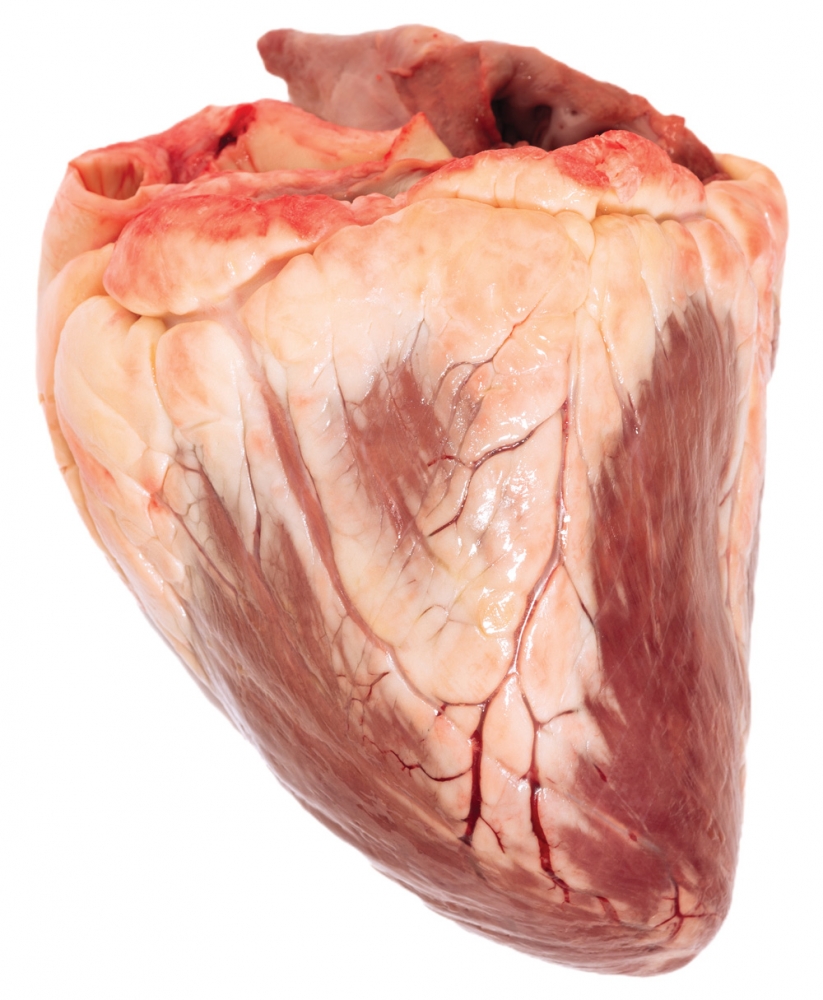
Amount: Many commercial diets and those making homemade diets will follow the 80-10-10 rule (80% muscle meat, 10% bone, and 10% organ meats).
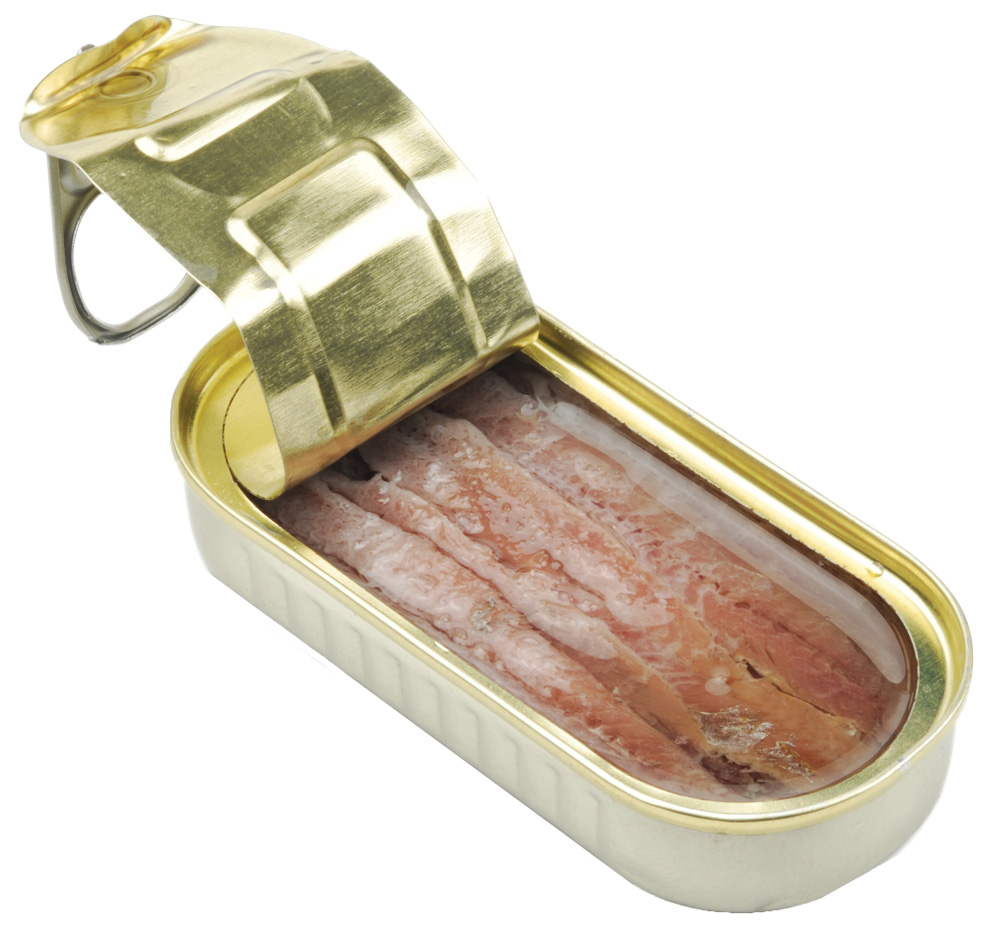
Dosage: start low and work your way up. Smaller dogs: start with half a sardine per day. Increase the portion depending on your size of dog. There are also high quality commercially prepared oils available for dogs that make dosage easy. Just measure and add to your dog’s food! We like Iceland Pure’s Sardine Anchovy oil. It contains high levels of EPA and DHA Omega-3 fatty acids, is unscented, and easy to administer! (From $15, icelandpure.com)
*Remember that treats and other additions to your dog’s regular meal should comprise no more than 10 percent of their daily intake. Always introduce new foods gradually to avoid stomach upset. When in doubt, consult your vet.
Join the newsletter and never miss out on dog content again!
"*" indicates required fields
By clicking the arrow, you agree to our web Terms of Use and Privacy & Cookie Policy. Easy unsubscribe links are provided in every email.
